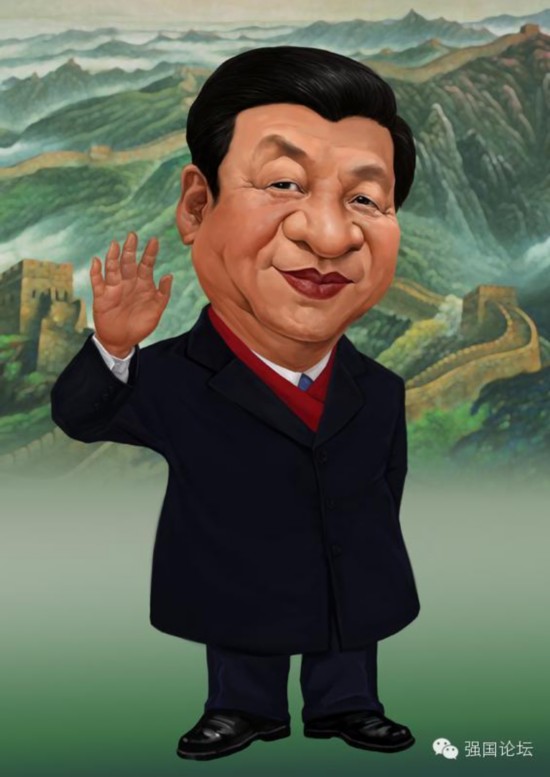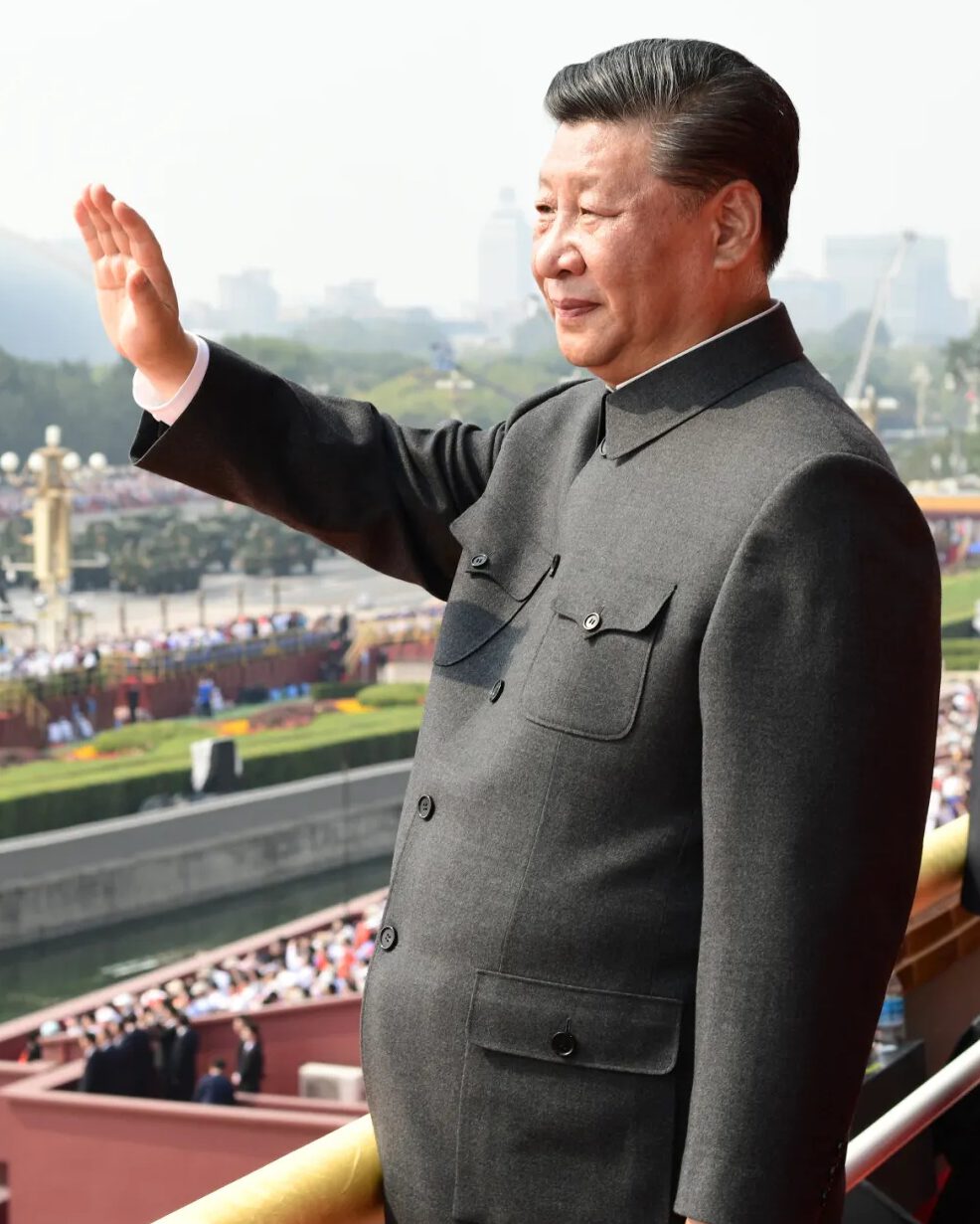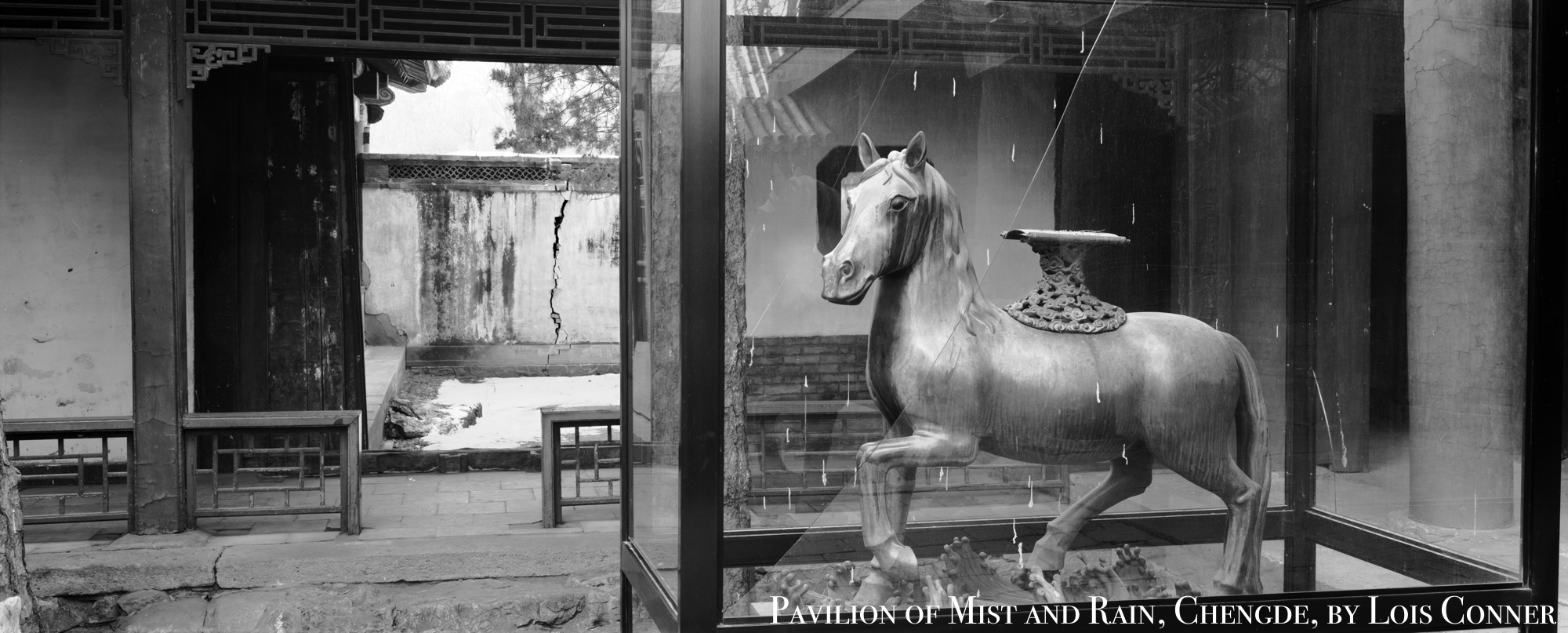Xi Jinping’s Empire of Tedium, Appendix III
霸
Political power struggles in the People’s Republic of China have an ineluctable rhythm. Every five to ten years the quotidian thrum of wrangling reaches a dramatic crescendo as the contention between individuals, factions and elites is focussed on the spoils of power. In 2022, the ambitious are consumed by a unique brand of olympics, a China-specific Hunger Games.
Although it is presumed that Xi Jinping, the party-state-army Chairman of Everything, will claim a third term as head of the Party, probably under the revived title of Party Chairman — the lacklustre burdens of general secretary are best relegated to a lesser mortal — the Twentieth Party Congress slated for late 2022 provides rich opportunities for political advancement; with political status comes commercial opportunity.
The behind-closed-doors lobbying that is synced to the official biorhythms of the system is accompanied by the frenzied activities of the only influencers that really matter in China — strategists, military men, SOE CEOs, thinkers, plotters and intellectuals of all kinds. Advice papers, research documents and analytical reports are circulated within various echelons of the Party nomenklatura; some are commissioned, others are concocted in secret. They aim to offer advice, garner attention, advance careers as well as frustrate opponents.
During the Party’s last power transition in 2010-2012 a flurry of works were published by analysts, observers and freelancers. These included Deng Yuwen’s The Ten Grave Problems Facing China, Rong Jian’s Ten Questions and Yuan Peng’s The Five Vermin 五蠹 Threatening China, to name but a few. Within the ranks of the Party opuscules swirled like snowflakes. Occasionally, passages from such ‘memorial writing’ 奏摺文學 would appear in opinion pieces or commercial publications.
In what passes as China’s quasi-public realm in 2022, opinion pieces and analyses would also be circulated online, until interdicted by assiduous net nannies. Weighing in at 40,000 Chinese characters ‘An Objective Evaluation of Xi Jinping’ 客觀評價習近平 released in late January under the name ‘Fang Zhou & China’ 方舟與中國 (literally ‘China & Its Ark’, referred to as Fang Zhou below) was the first public salvo in China’s 2022 ‘selection year’. Commentators in the independent Chinese media hastened to note that Fang Zhou’s damning round-up was released on the eve of the 2022 Winter Olympics in Beijing, an event staged in part as a celebration of Xi Jinping.
In his estimate, one that is so overwhelmingly negative in tone that it reads like a harangue, Fang Zhou advances a number of arguments that have been made with clarity and force by others. These include the numerous analytical works initially published in China by Xu Zhangrun 許章潤, formerly a professor of jurisprudence at Tsinghua University (see the Xu Zhangrun Archive in China Heritage), as well as the unstinting words of Xu Zhiyong 許志永 (see ‘Dear Chairman Xi, It’s Time for You to Go’, ChinaFile, 26 February 2020) and ‘The Clown-Emperor Has no Clothes’ 剝光了衣服堅持當皇帝的小丑, by Ren Zhiqiang 任志强. These writers have all been punished for their temerity — stripped of his job and pension Xu Zhangrun lives in Beijing in a state of internal exile; Xu Zhiyong was detained in February 2020 and, in September 2020, Ren was sentenced to eighteen years’ imprisonment. So it is little wonder that Fang Zhou, if indeed they are in China, has published their scathing attack on Xi Jinping anonymously. Commentators speculated about the author’s identity, some suggesting that Fang Zhou had to be a Party insider. For this writer, however, one thing was obvious: this dauntingly lengthy work reflected the author’s animus and frustration, even though it offered no deeper analysis or a framework for understanding China’s present dilemmas. The virtue of Fang Zhou’s assessment was that it offered a relatively up-to-date and multifaceted accounting of Xi Jinping’s rule; its vice was that, as the old jape goes, in it no turn is left unstoned.
Fang regards Xi’s dominant vision to be what elsewhere we have dubbed ‘totalitarian nostalgia’. It expresses itself as a political longing for the grand style of Sino-Soviet socialism, for a holistic, all-embracing political credo that demands ideological purity and that seeks to impose a puritanical view of personal probity. Based on Mao-era myths and an idealised, sentimental view of the first three decades of the People’s Republic, Xi’s vision of the past is one that he believes remains vital and essential for China both today and tomorrow. Elaborated and encouraged by claustral viziers like Wang Huning 王滬寧, this worldview is just capacious enough for the modern-day absolutist to embrace the material fruits of the economic reform era along with the possibilities of an integrated hi-tech future. It is a vision that limits China’s horizons in all directions, reducing the country to the size of Xi Jinping’s pusillanimous soul.
Fang Zhou opines that, for the most part, Xi’s policies have been retrogressive and derivative, his successes minor and his blunders numerous. According to the Party, Mao Zedong merited a thirty percent bad vs. seventy percent good evaluation, as Fang Zhou see it Xi Jinping’s achievement deserves a score of less than zero.
Perhaps, as Fang Zhou has it, Xi Jinping will indeed prove to be a transitional leader. We, however, would suggest that, given China’s post-1949 history and the long tail of dynastic rule, today’s Chairman of Everything is the harbinger of a resilient autocracy.
Below we offer a translation of the concluding section of Fang Zhou’s lengthy exposition. It forms Appendix III of Xi Jinping’s Empire of Tedium.
— Geremie R. Barmé, Editor, China Heritage
Distinguished Fellow, The Asia Society
10 February 2022
寅壬虎年
正月初十石磨日
***
Further Reading:
- Xi Jinping’s Empire of Tedium, 1 January 2022 (ongoing)
- Prelude to a Restoration: Xi Jinping, Deng Xiaoping, Chen Yun & the Spectre of Mao Zedong, China Heritage, 20 September 2021
- Xu Zhangrun 許章潤, ‘Viral Alarm — When Fury Overcomes Fear’, ChinaFile, 10 February 2020
- Homo Xinensis, China Heritage, 31 August 2018
- Xu Zhangrun 許章潤, ‘Imminent Fears, Immediate Hopes’ — a Beijing Jeremiad 我們當下的恐懼與期待, China Heritage, 1 August 2018
- 黃萬盛論疫情及當今中國 (錄音完整版),華爾街電視,2022年2月12日

***
Xi Jinping’s Denouement
習近平的終點
Fang Zhou
方舟
Translated by Geremie R. Barmé
In many ways, Xi Jinping is emblematic of modern China. He is somewhat akin to a beacon that highlights the vicious cycle of China’s authoritarian politics. As someone who is thoroughly embroiled in that world, however, he is incapable of appreciating his own political predicament with any measure of objectivity. That’s why, as the political tide in favour of his kind of politics retreats, he has had to devote inordinate amounts of effort to maintain a steady footing, even as all of this straining flies in the face of contemporary Chinese reality. After having repeatedly steadied himself in this manner Xi Jinping now finds himself becalmed on the shoals of a multitude of problems.
The fact that [in November 2021] he preemptively moved to shore up his historical position and legacy [by having the Party produce a resolution two thirds of which was devoted to himself] was undeniable evidence of how anxious Xi Jinping is to buy himself a little more time. —— In the process he diced up post-1949 Chinese history into three eras: the first two belong to Mao Zedong [ 1949-1978] and Deng Xiaoping [1978-2012] respectively. The third, the decade of the New Era, is entirely Xi Jinping’s creation.
習近平是中國近代的一個標誌性領袖,他像燈塔一樣顯示出專制政權的 週期性困境。而且作為一個局中人,他很難跳出政治立場去認知這一 點。因此當歷史的退潮來臨時,他試圖創造一股逆時代的力量去站穩腳 跟; 不過這卻讓他在一片困難中擱淺。他希望為自己爭取多一點時間, 因此提前宣示了自己的歷史地位。——他把中國分為三個時代,將之前 的中國定義為毛澤東和鄧小平的時代,而他則是新時代的締造者。
Xi Jinping has taken his cult-like aspirations to an absurd length demonstrating in the process that he will do whatever it takes to maintain power. Regardless of all that, the fact is that Xi Jinping can in no way really compare himself to those earlier leading Party luminaries, Mao and Deng. Like the performance of some soloist, Xi is straining to convince his audience he is performing a unique tune. In the process he has stage-managed things in such a way that history itself has been obliged to pass its judgment on him even though only his successors will ever really be in the position to do so.
這種做法把習近平的自我宣傳推向登峰造極,人們看出他為輓留政治地位,已經無所不用其極; 因為毛鄧是他完全不可與之比肩的人; 而習近平在宣傳上把自己無限拔高,就是為了去攀附這兩個共產黨的巨擘; 他像唱獨角戲一般強調著自己的重要性,做了後輩才應該做的蓋棺定論。
There is no precedent for such behaviour in the annals of the Communist Party. It is as though Xi Jinping’s political capital has already all but been exhausted; yet even now he is not satiated. That’s because, in the final analysis, Xi knows that for all of this he cannot twist reality in accordance with his will. At best, Xi Jinping will be a transitional figure in the history of the Party. He has already reached the limits of his abilities and may well have exceeded the boundaries of what he might have achieved. Therefore, people are confounded as to why exactly the Party apparat has tolerated him for so long and allowed him to put China in its present position.
共產黨從沒有這樣的先例,顯然習近平的政治氣數已到了強弩之末,而他卻很不甘心; 他終究不是一個扭轉乾坤的人,對中國和共產黨來說,都只會是一個過渡領袖。而且他已經走得太遠,甚至超出了應有的預期。以至於有人疑惑,黨內為什麼能如此容忍他,讓他把國家搞到今天這般境地。
The answer is that Xi Jinping has employed the Chinese system to his advantage masterfully. He has demonstrated traits associated with a paranoid psychopath personality type and has been unflinching in deploying the Party’s powerful praetorian guard along with the full suite of its surveillance operations to rein in and control the Party elite. Crucial to this process was the fact that when Xi rose to power the Party was enjoying the longest period of stability in its history. As a result, as he accumulated power there was virtually no way that an effective opposition faction could form.
In the early decades of post-1949 history, the ruling elite was made up of the men who had fought real battles to conquer the nation and infighting over the spoils of war was inevitable. The successor generations, however, are all people with deeply entrenched vested interests. Unlike their ancestors, they have never been on a battlefield and they lack the murderous prowess of their forbears. Wooed by comfort and disarmed by complacency these successor generations have proved to be feeble. Early on they were aware that they had a great deal to lose if they rose up to oppose Xi.
其實這是由於習近平最大程度地利用了中國的行政結構,以中央警衛局 和其他監控手段去管控黨內高層,因為他是一個掌控欲和危機感都較重 的人。不過更根源性的因素是,共產黨處於建政後的穩定期,已經很難產生強大的反對派; 通常打江山的那一代人在執政地位上相去不遠,因此很容易把權力鬥爭推高。而那些享受既得利益的後代們,不像他們祖輩那樣直面過戰爭,帶有一股殺伐氣; 他們早已在安穩和逸樂的生活中 變得萎靡,而且容易患得患失。
At that historical juncture [of 2008-2012] an individual with a strong personality and formidable political skills—someone like Xi Jinping, in fact—knew that they could dominate the Party nomenklatura with considerable aplomb. On top of that was the kind of person Xi Jinping happens to be: he’s simply more ruthless than anyone else. In other words, Xi Jinping took advantage of the limitations of his opponents as well as the Party as a whole and was simply able to terrorise everyone into submission. If that had happened twenty, let alone thirty, years ago, he would never have got very far; the Eight Elders would have dispatched him in no time.
而此時如果出現一個性格強勢且具備權術特質的人,就能夠造成對群體的壓制。而且就性格來說,習近平也的確比其他人更橫得下心。也就是說,習的優勢在於黨群太弱,才得以讓他威風八面。如果放在二三十年前的政治環境,這種治國方式早就被叫停,他自己也會被元老們罷黜。
It is obvious that no individual or group within the Party can now rein Xi Jinping in. That means, however, that Xi will be the architect of his own undoing. His way of ruling China results in repeated and ever greater policy missteps and as such it is simply unsustainable. That Xi has been able to get this far is a testament both to his obduracy and his inertia, a flailing about produced by his refusal to back down on any front. The truth of the matter is that he has never really been bolstered by sincerely held core beliefs; he is sustained by his political instincts. Some people in the Party have his measure. They make a show of total compliance and even encourage his willfulness. They commandeer access to him and have proved themselves to be masterful at putting the best face on the consequences of his political follies. In reality, they are guiding him towards an impossible predicament while allowing people to focus all of the frustrations and fury created by his policies on him and him alone. When the time comes Xi Jinping will bear sole responsibility for the quagmire that lies at the heart of China’s cyclical authoritarian politics.
顯然黨內已經很難制約習近平,不過他卻免不了敗於自己之手; 因為他的執政方式難以繼,只會造成越來越破敗的局面,讓他堅持至今的是一種性格上的執拗和失去退路的無奈。他一直沒能獲得讓內心得以支撐的信念,而更像在執行一種權力本能。針對這種脾性,黨內一些人會採取順水推舟的態度去慫恿他,他們會堵塞他的言路,並為他的錯誤圓場; 他們會把他推入一個無以復加的境地,並把所有仇恨都引到他身上去,然後讓他為共產黨的週期性困難承擔責任。
Xi Jinping cannot escape his fate. Even as he has pursued his ideal vision of totalitarian control, other forces have being using him for their own ends. ——Within the Party people encourage his worst instincts with the aim of creating political opportunities for themselves. Internationally, Europe has taken advantage of the Sino-American conflict to increase its market share. The other new economies have encouraged a split with the West for the sake of bolstering their supply chains. America, too, has been using Xi Jinping’s aggressive approach to further its interests in Asia. And then there are China’s own democracy activists: they hope Xi Jinping will get a third term in office confident that it will hasten the collapse of the Communist Party.
而此時的習近平,已經無法跳出這種局面; 他一直在追逐一種理想的極 權主義,而這卻被現實中的各種權術所利用。——黨內有人煽動他走向 極端,從而創造政治契機; 歐洲在利用中美的角逐,去佔據更多的市場 ; 而新興國家則鼓勵中國與西方割裂,以推動其產業鏈流出; 同時美國也在利用習近平的攻擊性,去挑動亞洲的局勢; 甚至就連民主人士們, 都寄望於習近平連任以拖垮共產黨。
Of course, it is quite possible that Xi Jinping actually believes that he has the wherewithal to transform the world; even then, confronted by the stark realities of the prevalent vested interests [in the Party and more broadly in China] it is inevitable that what he does [in particular in the economic realm] will be overturned lock, stock and barrel. ——China has been in the process of integrating with the world for decades and it is impossible for any one person to turn back the tide. The Communist Party simply won’t allow the vision of one man to lead to a new cold war with the rest of the world. If Xi really does undermine the shared interests of large groups in society it will lead to mass disaffection. That’s why his situation is so precarious at the moment; it’s easier for people to oppose Xi than to oppose the Communist Party itself. Over time, elites on both sides will collaborate and foment the kind of political crisis that will create a rift between Xi and the Party. Then he will be faced with mass alienating and people will pile on to bring him low. Thus, he will end up as a votive offering laid out on the altar of political reconciliation.
或許一直以來,習近平都認為他能改變世界; 但在既定利益面前,他必然會被全盤推翻。——中國與世界經歷了幾十年磨合,不可能因某個人而決裂; 共產黨也不會為習近平的一己之利去與世界冷戰; 倘若他執意破壞共同利益,最終會觸犯眾怒。而此時對他來說就很危險,因為大家會採取反習不反共的策略; 兩邊的高層會建立協作,去引導一場政治變 局,把習近平和共產黨切割; 而這會讓他遭遇一個牆倒眾人推的局面, 並成為政治妥協之下的獻祭。
Maybe Xi Jinping really can’t see any of this coming down the track; nonetheless, he knows that the future is unclear, and it is not as though he hasn’t had moments of real clarity in the past. If you look at some of the early videos of him, for example, they show a man who exuded confidence and a certain fluency, both of language and of thought. He was quite well spoken and he occasionally even showed signs of a real personality. In one home video you actually hear him tell everyone present that: ‘The most important thing is to stay true to yourself.’
或許習近平不會預估這樣的結果,但他也會感到前路迷茫。其實在以前 ,他也有過清澈和豁達的時候; 在一些早年的影像中,曾記錄了他的過往; ——他當年接受採訪時,顯得思路流暢,吐字清晰,且流露出一種 罕見的真性情; 此外在一段家庭錄影中,他向大家說:「一個人最好還是要保持本色。」
Well, nowadays he is not true to himself. He’s an entirely different person from the past. Previously his eyes sparkled with alacrity and he appeared to be mild-mannered and polite. After he became the leader of China earlier sheen disappeared; both his facial expressions and his manner have undergone a profound transformation. Now it’s though we are seeing him age in real time and it is as though he is shriveling up into himself.
但他最終失去了本色,從前的他和現在判若兩人; 他早年雙目有光,顯得平和而謙遜; 但成為中國領袖之後,卻日漸衰頹。他的面容和氣質發生了很大變化,幾乎以目力可及的速度在老去,並且整個氣場都在衰敗。
It is remarkable that the man’s stature has actually diminished with every stage of his elevation. In becoming the ultimate leader it is as though Xi Jinping has suffered a great loss, including some of the things that allowed him to be the kind of unaffected person he used to be: his family, his marriage and his friendships. Although he might have won in politics, Xi is but a temporary victor and he has lost a large measure of his personal autonomy.
這種轉變讓人匪夷所思,因為他的神采就是伴隨他的政治升遷而消退的 ; 或許成為最高領袖讓他失去了很多東西,包括他曾擁有的那些淳樸的事物,——他的家庭,婚姻和友誼。儘管他保留了政治博弈所獲得的勝利,但仍是一個階段性的勝利者,並且失去了很多自主。
As things stand at the moment, I would suggest that going forward Xi Jinping will have a very hard time of it. The year 2022 will prove to be his biggest turning point. Even if by some remarkable sleight of hand he manages to secure another term in office, he will still be facing a landscape riven by problems and an inevitable rout in the year 2027. He’s caught up in a monomaniacal fantasy one that cleaves to the notion that real-world politics can be based on the kind of abstract ideals that he holds dear. His circumstances are not all that different from those experienced by Yuan Shikai [in the 1910s]. He was a political figure whose autocratic mindset and imperial ambitions were frustrated and rebuffed by the reality of the times. Well may Xi Jinping inwardly regard himself as the greatest ruler in all of Chinese history but, sooner or later, he will learn that this is a chimera. The yawning chasm between Xi’s hubristic self-belief and reality is his Achilles heel.
就他的現狀來說,已經很難在從政之路上持續走下去; 2022 年將會是他 最大的轉折點,即便他能用某種魔術式的手段獲得連任,他也會面臨滿途荊棘,並在 2027 年前迎來全面的破敗。他陷於強烈的自我偏執,以至於把政治過度理想化; 他的處境和袁世凱當年相似,整個統治期都處於一種反差的時空中。他可能在內心上把自己奉為千古一帝,但最終會明白這不過是黃粱一夢。而這種理想和現實的落差,往往會成為一個執政者最致命的傷口。
Xi Jinping may well end up as a lonely figure; his comeuppance is unavoidable. People will not keep investing in unrealistic fantasies that they know can only lead to disaster. Even his supporters will gradually distance themselves from him and, when everyone has finally moved on, he will be left on his throne all by himself. Then he will gasp the last breath of his political life.
習近平很可能遭遇一個落寞的收場,對他來說,該來的總會來; 人們不會固守不切實際的幻想,去跟隨他一起覆亡。即便是他的支持者,也會與他漸行漸遠。而當大家都離去,只把他一人留在寶座上煢煢孑立時,也就是他的政治生命壽終正寢之時。
***
Source:
- 方舟與中國,‘客觀評價習近平’,2022年元月
***


